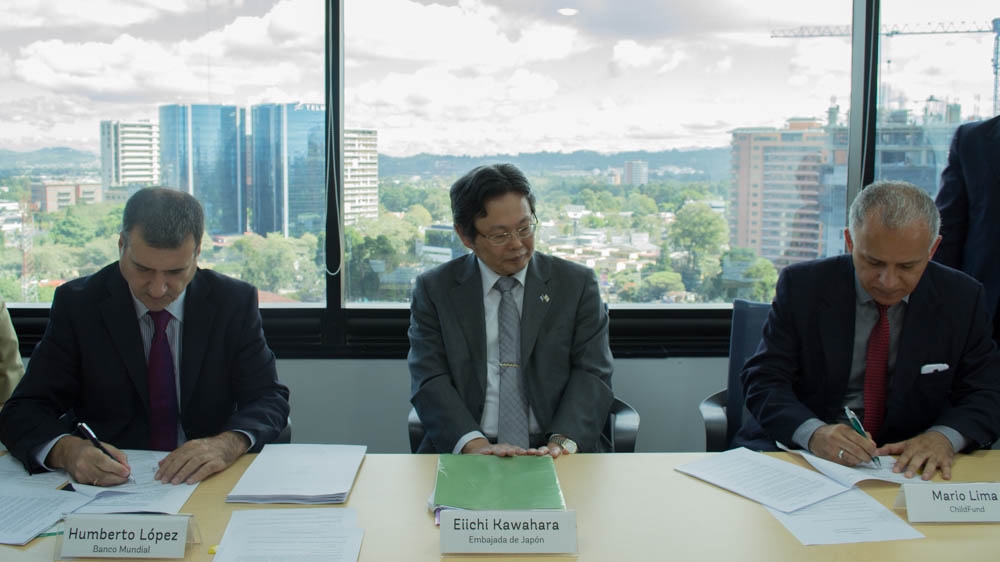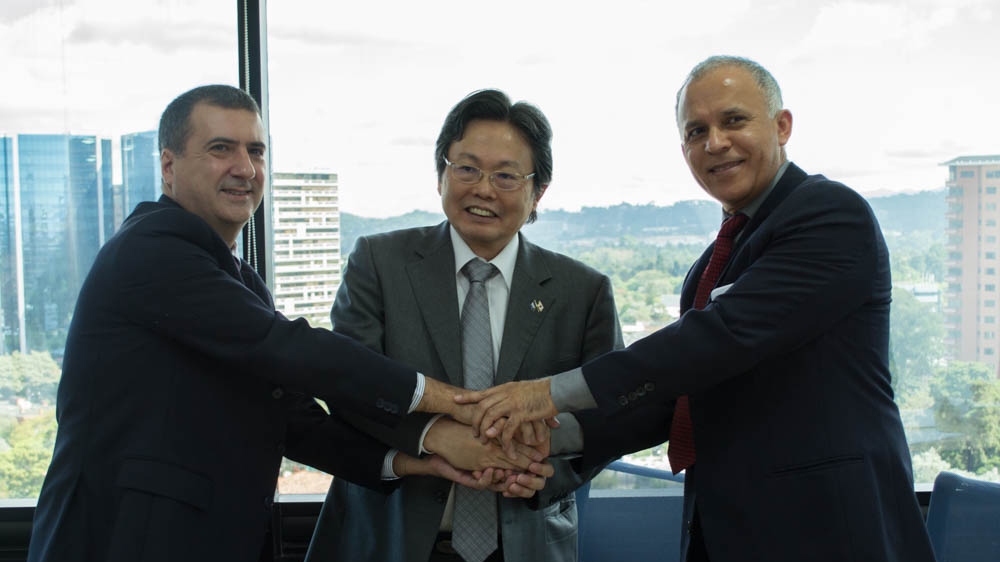The initiative, financed by the Japan Social Development Fund, will help improve development indicators in one hundred communities in Guatemala’s high plateau
The initiative, financed by the Japan Social Development Fund, will help improve development indicators in one hundred communities in Guatemala’s high plateau

GUATEMALA, NOVERMBER 7TH, 2014 – The World Bank, the Government of Japan and ChildFund International presented a pilot project today aimed at helping parents and communities improve the health and development of 12,200 under-two-year-olds in one hundred communities in Guatemala’s high plateau. The project, financed with a US$2.75 million donation from the Japan Social Development Fund, seeks to integrate nutrition, parental support and early stimulation activities.
The “Our Healthy, Smart Children” project will be implemented across four years by ChildFund Guatemala, in coordination with the Ministry of Public Health and Social Assistance.
12,200 under-two-year-olds will benefit, involving more than 13,000 parents. The project will be implemented in one hundred communities in the departments of Huehuetenango, Quiche, San Marcos and Totonicapan, where nine out every ten people live in poverty, while chronic malnutrition rates exceed 70 percent.
“On this occasion, the Government of Japan, via the Japan Social Development Fund at the World Bank, is supporting the execution of this project with US$2.75 million. Up until now, Japan has prioritized food security, nutritional improvement and child health promotion issues,” said Eiichi Kawahara, Japanese Ambassador to Guatemala. “I hope this project can be put into practice in collaboration with municipalities, central government institutions and the Japan International Cooperation Agency (JICA),” he added.
The project will support the addition of parental support and early stimulation activities for under-two-year-olds to the community health and nutrition services provided by the “Hambre Cero [Zero Hunger]” government program. Parental support includes motivation and culturally appropriate communication on nutritional and child care best practices, such as early maternal breastfeeding, hygiene practices at the household level and the introduction of complementary nutritious foods, among others. Moreover, parents and child tutors will have access to knowledge aimed at stimulating children by providing them with words, numbers and simple concepts in daily routines.
“This project, financed by Japan’s Cooperation, will complement the results obtained via various World Bank projects focused on health, nutrition and education in Guatemala,” said Humberto Lopez, World Bank Director for Central America. “The synergy from integrating nutritional interventions and early stimulation of parents and children will contribute to having children that are better prepared for school and capable of making better use of development opportunities.”
The project’s launch was also attended by Marco Gutierrez, Deputy Minister of Public Finances; Mario Lima, National ChildFund International Coordinator; Toshiya Wakabayashi, Deputy Resident Representative for JICA Guatemala; Oscar Avalle, World Bank Representative in Guatemala; and Paul Bode, ChildFund International Manager for Latin America.
About the Japan Social Development Fund
The Japan Social Development Fund (JSDF) was created in June 2000 by the Government of Japan and the World Bank as a mechanism to provide direct assistance to the poorest, most vulnerable groups. The Government of Japan has already provided more than US$680 million to the Japan Social Development Fund Program. The World Bank serves as Program Administrator, supervising its implementation and guaranteeing the transparent and efficient use of its funds according to its acquisition and financial management guidelines.


